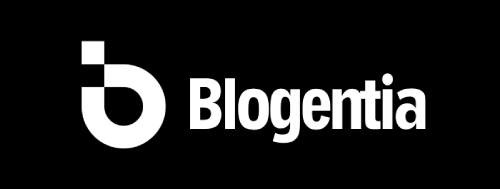What Guides Institutional Conduct and Decision-Making at UNISA

At the University of South Africa (UNISA), institutional conduct and decision-making don’t happen in a vacuum—they’re anchored in a web of legislation, governance structures, ethics standards, and stakeholder involvement. These guiding pillars work together, ensuring that UNISA remains transparent, accountable, and aligned with both its mission and the broader South African higher education landscape.
1. Legal Framework: Higher Education Act & Institutional Statute
UNISA operates under the Higher Education Act 101 of 1997, which defines the legal mandates for public universities. Built on top of that, UNISA’s own Institutional Statute—promulgated in 2006—fills in gaps left by national law and sets out internal institutional governance structures. Together, these documents lay out the university’s authority, decision-making boundaries, and governance responsibilities. :contentReference[oaicite:0]{index=0}
2. Governance Bodies: Council, Senate & Executive Management
At the top sits the Council—UNISA’s supreme decision-making body. It steers strategic direction, oversees the executive, and ensures proper governance through subcommittees, as mandated by the Higher Education Act. :contentReference[oaicite:1]{index=1}
Meanwhile, the Senate handles all academic affairs—curriculum, assessment, and research quality. Senate is accountable to Council, but Council must not overstep by second-guessing academic decisions, which has been flagged as an issue needing attention. :contentReference[oaicite:2]{index=2}
Operational duties rest with the executive management team, led by the Vice-Chancellor and supported by vice principals, deans, directors, and registrars. This management team oversees resource allocation and day-to-day execution of policies. :contentReference[oaicite:3]{index=3}
3. Ethics, Transparency & Corporate Governance (King IV)
UNISA’s governance is emotionally grounded in values such as integrity, transparency, accountability, fairness, and social responsibility—principles drawn from the King IV Report on Corporate Governance. These inform its Codes of Practice and Codes of Ethical Behaviour, which are embedded in Council-approved governance frameworks. :contentReference[oaicite:4]{index=4}
4. Policies and Codes of Conduct
UNISA maintains a suite of institutional policies that shape decisions across academic, administrative, and ethics domains. Academic policies uphold standards such as fairness and honesty in teaching and research. Administrative regulations govern financial management, HR operations, and align with both national law and institutional statutes. Ethics codes steer the behavior of staff and students in alignment with institutional values. :contentReference[oaicite:5]{index=5}
5. Strategic Planning & Stakeholder Engagement
UNISA’s Vision and Mission—framed within South Africa’s broader development goals like the African Renaissance and NEPAD—shape long-term planning. Strategic plans then outline priorities, resource allocation, and institutional focus. Stakeholders—students, alumni, academic staff, and the broader community—contribute input into these decisions through consultations and representation in committees. :contentReference[oaicite:6]{index=6}
6. Research Integrity & Ethics Infrastructure
Research at UNISA is governed by a robust ethics and integrity framework. The Research Integrity Office (RIO) ensures oversight through college-level Ethics Review Committees and a centralized system that enforces ethical research conduct. This includes a focus on addressing epistemic injustice, promoting Afro-centric ethics, and ensuring fairness in collaborative research partnerships. UNISA also saw a major boost in research ethics training uptake in recent years, reflecting its strong commitment to ethical research governance. :contentReference[oaicite:7]{index=7}
7. Accountability, Transparency & Ethical Leadership Initiatives
UNISA also promotes ethical leadership through targeted training—such as workshops for student representatives grounded in the institution’s values (like the “11 Cs +1” framework). These initiatives reinforce transparency, integrity, and accountability in governance processes at both student and institutional levels. :contentReference[oaicite:8]{index=8}
8. Compliance & Oversight Mechanisms
By adhering to national higher education laws, constitutional obligations, and institutional statutes, UNISA ensures legal and ethical compliance. Council additionally receives risk and audit reports, ensuring continuous oversight over operations and governance structures. :contentReference[oaicite:9]{index=9}
Summary You Can Count On
To summarize, UNISA’s institutional conduct and decisions are centered on:
- Legal mandates: Higher Education Act and Institutional Statute
- Governance bodies: Council, Senate, and executive leadership
- Ethics and transparency: King IV governance principles
- Institutional policy frameworks: Academic, administrative, and ethical codes
- Strategic planning and stakeholder engagement
- Ethical research governance via RIO and research ethics committees
- Leadership initiatives and accountability practices
- Regulatory compliance and oversight mechanisms
